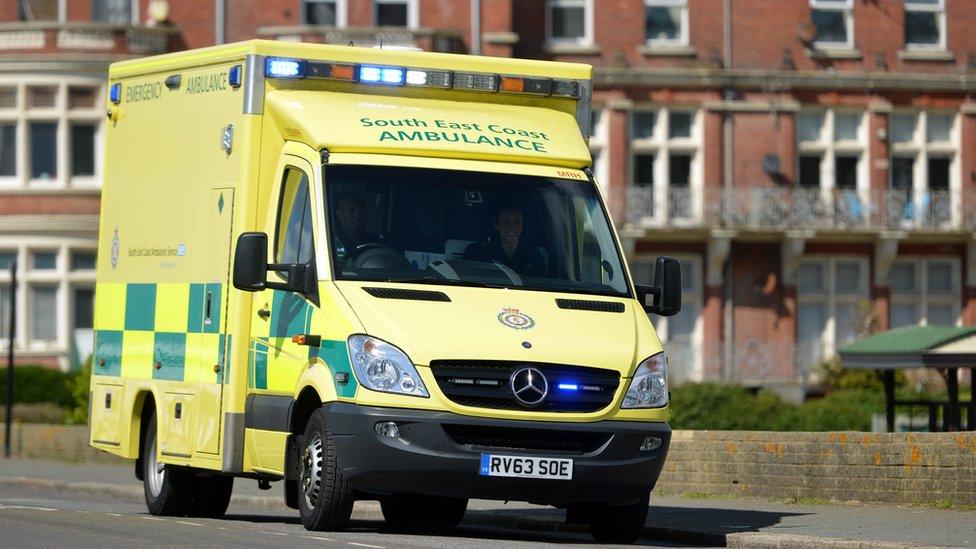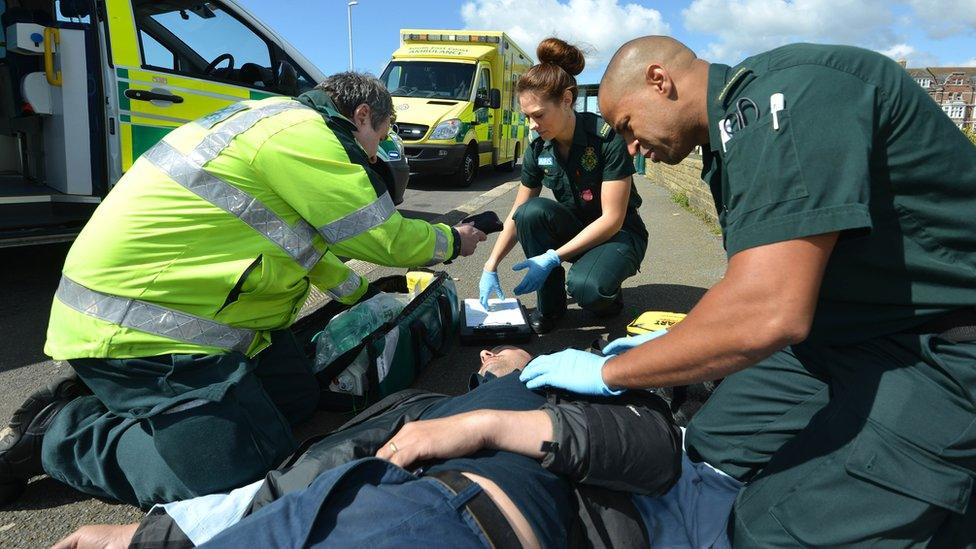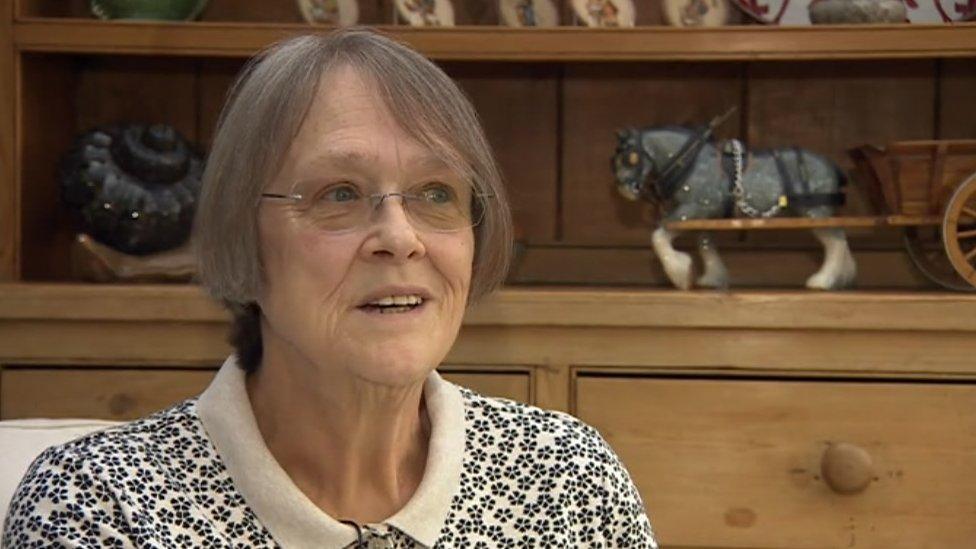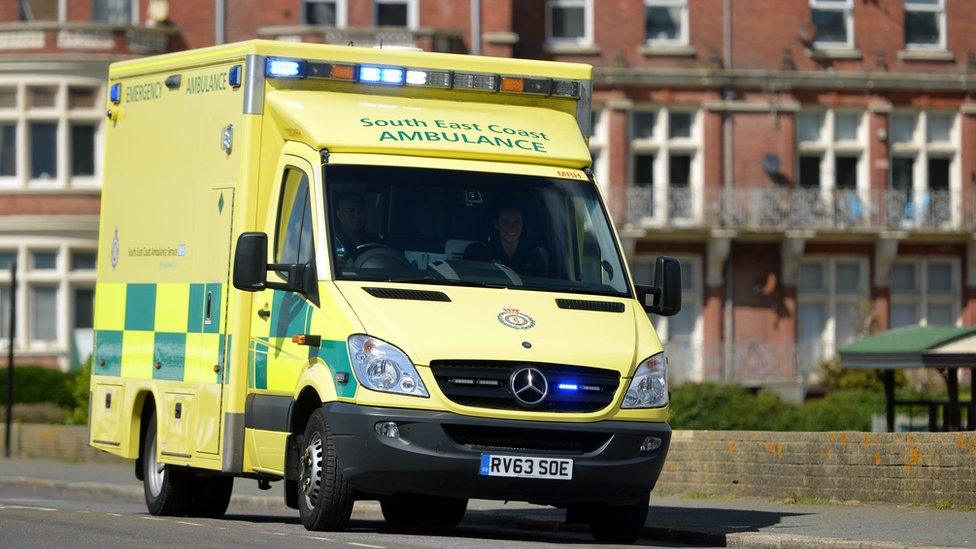Ambulance changes 'potentially put public at risk'
- Published

Secamb gave itself an extra 10 minutes to deal with some potentially life-threatening calls
A secret decision by managers to delay ambulances to up to 20,000 patients potentially put the public at risk, an independent investigation has found.
NHS England said people were not told their call was going into a queue during the changes made by South East Coast Ambulance Service (Secamb).
Patients thought an ambulance was on its way when this was not true.
Secamb has apologised and admitted proper processes were not followed during a time of "high patient demand".
Last week it was revealed Secamb was being investigated over the pilot project in which the trust decided to transfer certain 111 calls to the 999 system, thus gaining up to 10 additional minutes to assess patients' conditions.
As part of the pilot scheme from December 2014 to February, the trust transferred some calls between systems to reassess what type of advice or treatment patients needed and whether an ambulance was really required.

Patients thought an ambulance was on its way when this was not true, the report said
The NHS England report said pressure and demand on all ambulance trusts across England last winter was unprecedented.
It said Secamb introduced its pilot project because it was concerned about its ability to provide a safe service to patients with life-threatening illness and those who were severely ill.
But the report said:
The governance structures of the ambulance trust were not followed
The risks of the project were either not recognised or were ignored
The project was overseen by at least four executives who did not consult key staff
Serious incidents were not identified as there was no clinical input.

Frances Russell said no-one had got to the root cause of high demand on ambulance services last winter
Frances Russell, chair of patient's organisation Healthwatch West Sussex, said the cause of the "incredible" demand for services last Christmas and New Year led to the changes being made.
"I don't think anyone has got to the root cause," she said.
"I think its a whole range of issues and clearly poor decision making processes as well."
NHS England has made a series of recommendations following its investigation, including that there must be complete transparency within Secamb.
A spokesman for NHS England said: "The report makes clear that this project was initiated entirely within South East Coast Ambulance Service and resulted in changes to the handling of calls within the 999 service, not the 111 service.
"The regulator, Monitor, external, will oversee the next steps with the trust."
The Patients Association called for an independent investigation into "this serious failure of care".
"This is a whitewash and a major scandal," said chief executive Katherine Murphy.
"There has been is no accountability, no transparency in the investigation and absolutely no assurance for the safety of the public."
Secamb said in a statement: "We fully accept the recommendations in the NHS England report and have already started to act upon them, for example, by improving how we manage necessary change within the trust.
"We will continue to work closely with Monitor and NHS England through the review process to establish all the facts."
Secamb covers Kent, Surrey, Sussex, Brighton and north-east Hampshire.
- Published4 November 2015

- Published3 November 2015

- Published30 October 2015
